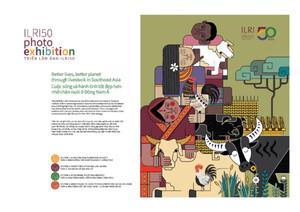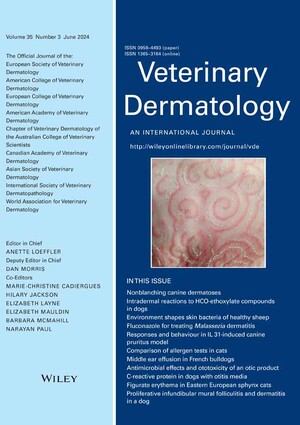
Presence of methicillin resistant Staphylococcus aureus (MRSA) in feces of the small Indian mongooses (Urva auropunctata) on Saint Kitts and Nevis, West Indies
Abstract
Although, historically, Methicillin-Resistant Staphylococcus aureus (MRSA) was restricted to humans, since 2005 these strains emerged in livestock and wildlife. Therefore, a One Health approach was applied to analyze the diversity and characteristics of S. aureus strains isolated from the invasive species of mongoose (Urva auropunctata) in St. Kitts. Fecal samples collected from these animals (n = 81) were cultured on selective agar. The isolated S. aureus strains were identified using MALDI-TOF and further characterized by whole genome sequence analysis. The fecal microbiome study identified the presence of S. aureus in 5 animals. Both MSSA (n = 3) and MRSA (n = 2) strains were identified. The two MRSA isolated were nearly identical ST5 SCCmec IVa (2B) strains. The two MSSA isolated were a new ST7434, pertaining to clonal complex 30, and the other belonged to ST5, but unrelated to the MRSA ST5. The SCCmec IVa (2B) is, however, the main SCCmec in human MRSA of different STs identified in St Kitts, indicating potential horizontal transmission events. In conclusion, a new type of MSSA, ST7434, was found and MRSA ST5 t002 SCCmec IVa (2B) found its way into wildlife on a small Caribbean Island. Further One Health studies are necessary to determine the role of MRSA in wildlife.
Citation
Hoefer, A., Becker, A.A.M.J., Moodley, A., Boyen, F. and Butaye, P. 2022. Presence of methicillin resistant Staphylococcus aureus (MRSA) in feces of the small Indian mongooses (Urva auropunctata) on Saint Kitts and Nevis, West Indies. Antibiotics 11(8): 990.










